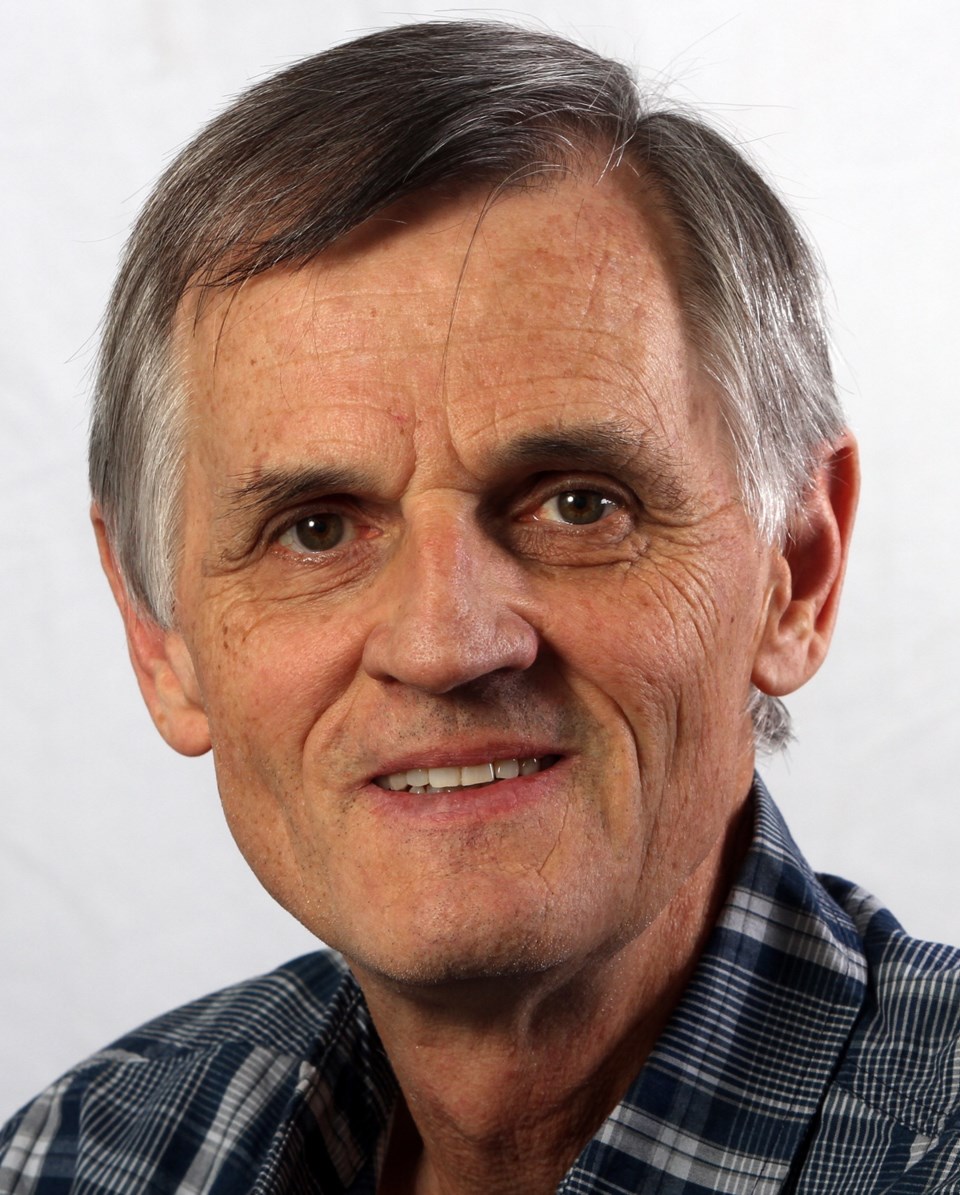 The flight from Vancouver to Los Angeles involved a stop in Seattle, but we were to stay on the plane, said the person at the counter when we checked in.
The flight from Vancouver to Los Angeles involved a stop in Seattle, but we were to stay on the plane, said the person at the counter when we checked in.
People filed off the plane in Seattle, but we obediently sat in our seats until a flight attendant saw us, and wondered why we hadn’t disembarked. It turns out we had been misinformed — that plane wasn’t going on to Los Angeles. There ensued a mad dash from one terminal to another to catch the connecting flight, but we made it just in time.
In Los Angeles, we once again found ourselves in a lonely position, staring forlornly at the baggage carousel on which one suitcase — not ours — kept disappearing and reappearing as the carousel turned.
I guess our luggage was also under the impression the Vancouver-to-Seattle plane would continue on to California.
As we boarded the shuttle bus outside the Los Angeles terminal, the driver said: “No luggage?”
Misplaced, we said.
“Let me guess,” he said. “You’re Canadians.”
We confessed to that crime, apologized, and asked him how he knew.
“Because you’re so polite,” he said. “And passive. I would be screaming and yelling if someone lost my luggage.”
The Canadian reputation for being polite, I believe, is somewhat exaggerated — there’s no shortage of rudeness here — but not groundless. It is a mark in our favour that politeness is seen as a national characteristic.
But are we polite to a fault? Are we getting fed up with always having to watch what we say?
A survey released this week by the Angus Reid Institute says 76 per cent of those participating in the survey believe political correctness has “gone too far.” Seventy-two per cent said they censor what they say to avoid offending others.
Seventy-eight per cent say there are limits, certain things you “just shouldn’t express in front of people you don’t know.” But about the same percentage also say it “seems like you can’t say anything” without offending someone.
Usually, when the term “political correctness” comes up, it’s in a pejorative sense, someone grumbling that they can’t say what they really think or complaining about the fetters society puts on such entertaining things as ethnic and misogynistic jokes.
In my younger days, I told my share — more than my share, actually — of such jokes, exercising my freedom to speak freely … and brainlessly. I was no different than anyone else I associated with in those days. We were democratic, though, as we bashed everyone with equal disregard.
We didn’t think we were hurting anyone. We didn’t think we meant any harm. And we learned some of it from our elders, some of whom described the refugees arriving from war-torn Europe as DPs, among other things. It means “displaced persons,” and as such, is an apt description, but it became a way of looking down on someone who was different.
Interesting, isn’t it, how we see someone whose lifestyle is different, and automatically assume ours is superior?
But as those people became part of the community, the derogatory terms largely faded away — they became our friends, they became us. And we learned lessons.
Words have a way of shifting meanings. “Welfare” is a perfectly good word, but it has acquired so many negative connotations — welfare bums, welfare recipients, welfare mentality.
So now it’s called social assistance. It doesn’t change things much.
Or does it? When we say social assistance, there’s a sense of helping someone, of lifting them up. It’s not a huge change, but it helps shape attitudes.
When I was a kid, certain people were referred to as mentally retarded. You can’t say that any more. And I’m fine with that. It’s a term that places limits, puts up barriers, closes doors. To describe someone as a person with a disability acknowledges the situation, but helps you first see a human being, not a handicap. You see someone who has potential, not someone to be warehoused and forgotten.
When jokes depend on putting someone down or ridiculing a person’s disability or race, the humour is one-sided and has a bitter flavour.
Perhaps we Canadians are too polite, too concerned about offending. But I’m not sure an excess of politeness is a dangerous disease.
Hateful and thoughtless words, however, can cause a lot of damage.
Yes, political correctness can sometimes go too far, but political incorrectness almost always does.


